pink lady
Tickled PINK
Dr Helen Cripps takes us on a European journey of insight into the popularity of the Pink Lady apple brand.

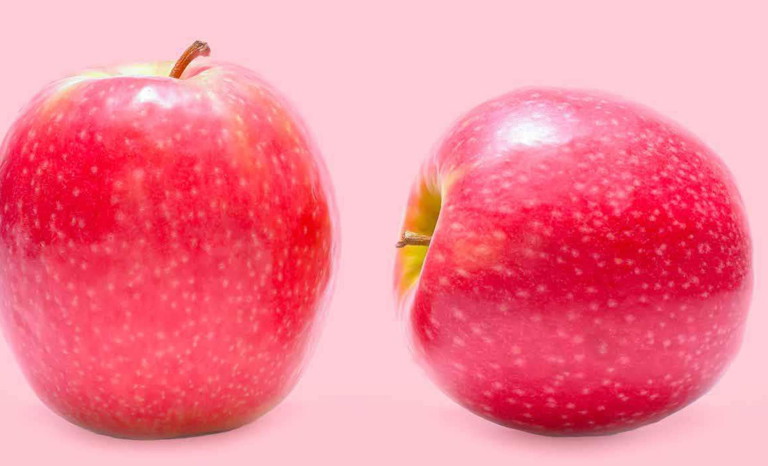
“ ... every metre of land was utilised with orchards, often even in between the houses in the town ”
GROWING up with John Cripps as my father, I did gain some insight into the importance of his apple breeding. When Dad turned 90 a few years ago, he seemed pretty down about reaching such a magnificent age. I told him at the time to cheer up as he was the only person I knew who had invented several apples that employed thousands of people worldwide. This impact on people’s lives was something I could never hope to achieve. It was only when he passed away in 2022 that I began to understand the global impact of the Pink Lady apple.
From my previous travels in Europe over the past 20 years, I have become aware of the incredible strength of the Pink Lady brand in Europe. I would take photos of Pink Lady apples in places such as Norway, Sweden, Slovenia, Croatia, Germany, the UK and the Netherlands to send home to my father. After meeting representatives of growers from around the world in 2022 in Thailand at the International Pink Lady Alliance conference, I promised to visit the growers in Europe.
Orchards of Italy
In September, I arrived in South Tyrol, a valley across which apple orchards extended as far as the eye could see. I had visited the orchards in Manjimup previously, but never had I seen a landscape covered with apple orchards to this extent. This was only one small growing region in the north of Italy. However, every metre of land was utilised with orchards, often even in between the houses in the town. My hosts Georg, Vincent and Manfred, introduced me to every member of the village as the daughter of the man who bred the Pink Lady apple because the apple has been very profitable for the growers and the region. Orchardists often grow grapes next to their apples, so I was offered numerous glasses of local orchardists’ own wine. All the orchards were family businesses with the fathers, sons and grandsons working together, so meeting me, as the daughter, was very special. Apples in this region are grown up to 500 feet above sea level along the valley sides. I was told that altitude affects ripening, which I didn’t know earlier, and the orchardists follow strict controls, growing to set standards. www.vegetableswa.com.au
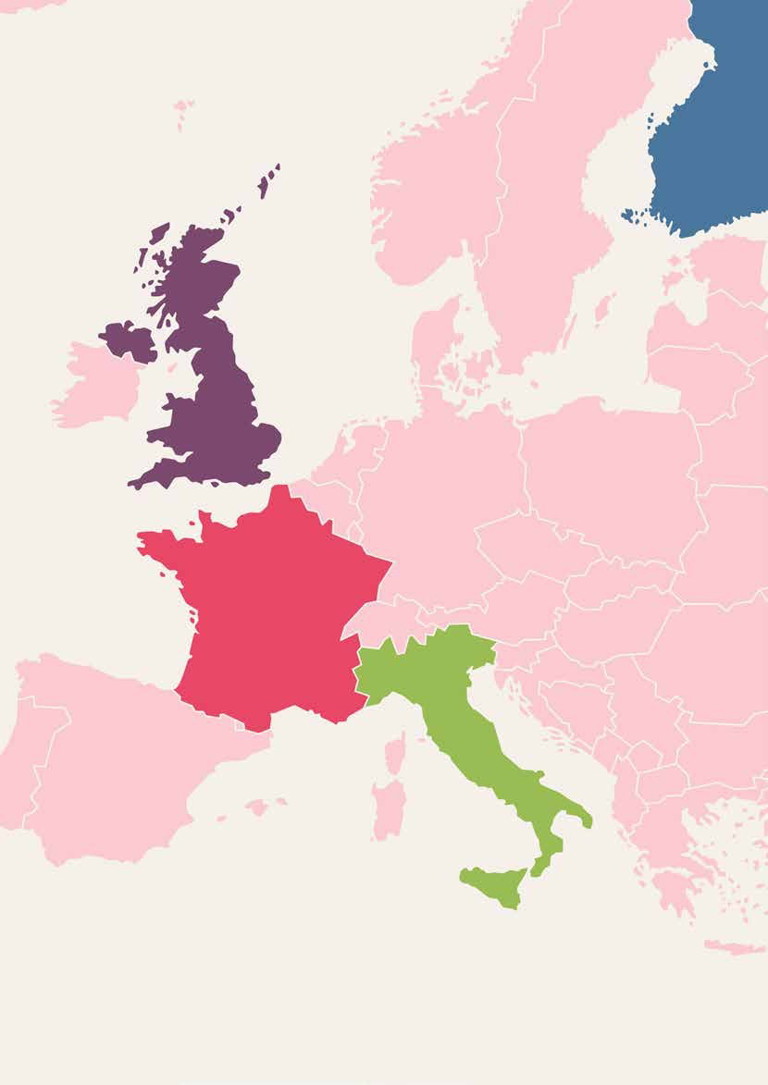
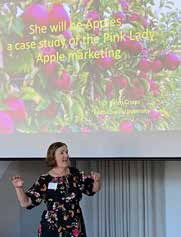
Presenting a paper on Pink Lady apple marketing in Finland in June 2023 after winning a best paper award.
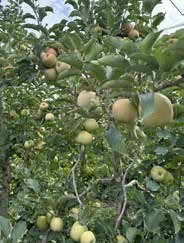
Pink Lady in France
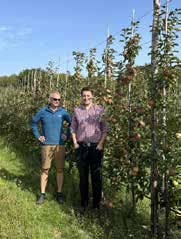
James Simpson and Tom Christensen of the Adrian Scripps Ltd Orchard in England.
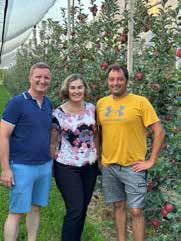
Manfred, Helen and Georg in South Tyrol Italy
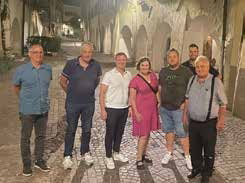
Original Pink Lady Family in Italy
Pink Lady in France
Star Fruits in Avignon was where Pink Lady was first planted in France. Here, I conducted research interviews on the success of the Pink Lady apple and spent a day at the Toulemonde orchards. I also had lunch with Dominic and Philippe Toulemonde’s youngest son, who joined the family business after working in New York. Although retired, Dominic and Philippe are still active in the orcharding business. I learned that the pristine conditions of WA had caused issues for French growers and that breeding scab- and disease-resistant apple varieties was the future for the industry. Further, poor ripening conditions of the 2022 season had led to the inclusion of apples with lesser colouration in the Pink Lady brand in Europe. Additionally, I learned that the changing climate potentially threatens the Pink Lady apple brand in Europe.
Grapes and Apples in the UK
I was surprised to see Pink Lady apples being successfully grown in England. The changing climate encouraged French wineries to buy up land across the south of England, so now grapes and apples are being grown alongside each other. Kent, where Scripps’ orchards are, is predominantly a hop-growing region. When Pink Lady was initially being commercialised, WA was heavily exporting apples to England. Later, UK supermarkets would sell Pink Lady apples from Europe and the Southern Hemisphere. Because of this, I did not expect to find Pink Lady apples grown in England. About five years ago, I had visited Steyning, where my father grew up and perfected his horticultural skills. As a teenager during the Second World War, he grew vegetables that fed not only his parents, but were also sold neighbours during rationing. Dad showed his entrepreneurial spirit and willingness to undertake complex work at a young age. My father’s experience during the Second World War marked him for the rest of his life as it bred in him a determination that bore fruit in the apple varieties that are famous around the world. I am immensely proud of my father and the impact he has had on the global apple industry, and I am committed to continuing his legacy by promoting the future success of Dad’s apples.
MORE INFORMATION
Helen Cripps at H.Cripps2@live.com